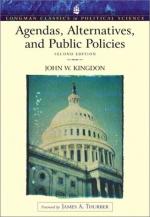|
This section contains 1,066 words (approx. 4 pages at 300 words per page) |

|
Drug arrests in the United States involve a wide variety of controlled substances, including MARIJUANA, CO-CAINE, HEROIN, PHENCYCLIDINE (PCP), and others, and a number of different charges, including possession, dealing (selling), and conspiracy to sell. After arrest, the prosecutor, or district attorney, exercises the discretion to choose among this broad range of legal options in deciding whether to bring a charge and for what activity.
Drug offenses can violate either federal or state laws. Since the majority of arrests are made by local law-enforcement officials, most defendants are charged in state courts. The cases received by federal prosecutors, called U.S. attorneys, from such federal enforcement agencies as the Federal Bureau of Investigation (FBI) or the DRUG ENFORCEMENT ADMINISTRATION (DEA), frequently involve more complex matters. However, the volume of federal drug prosecutions rose in the 1990s, as tougher federal drug laws and...
|
This section contains 1,066 words (approx. 4 pages at 300 words per page) |

|


